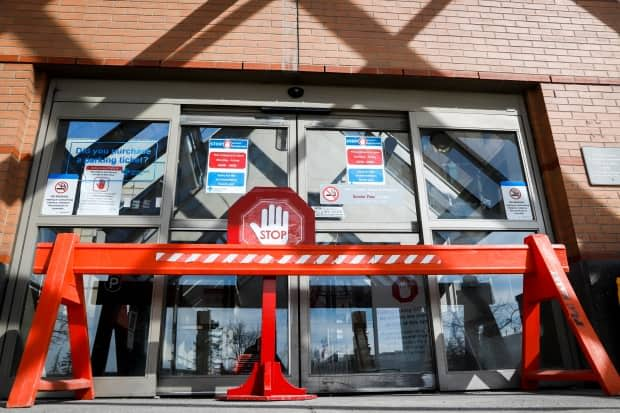From health care strains in the south to COVID-19 vaccine info, N.W.T. top docs have answers
As the Northwest Territories heads into December — and the holiday season — with zero active cases, now is not the time for people to let their guards down, says Dr. Kami Kandola, chief public health officer.
There have been more than 7,700 tests for COVID-19 done in N.W.T. There have been no new cases reported since November with all 15 of the previous cases listed as recovered.
Though there was a confirmed case of the virus on Friday in Yellowknife, since that person is not an N.W.T. resident and transmission is believed to have occurred outside the territory, the case was not added to the territory's count.
Out of the three territories, the N.W.T. has seen the fewest number of cases, but in nearby jurisdictions, cases continue to roll in, and in some areas, surge.
Kandola and the territory's medical director Dr. AnneMarie Pegg answered questions from listeners during the Thursday morning edition of the CBC's The Trailbreaker.
Here are some highlights:
How does Alberta's dire COVID-19 situation affect N.W.T. residents who use its health services?
N.W.T.'s southern neighbour, Alberta, is struggling to keep the virus contained.
The province has over 17,000 active COVID-19 cases, compared with 14,526 in Ontario, which has more than three times as many people. There is also a record-high number of people being hospitalized for the virus — 97 people in ICU, out of 504 in hospital, as of Wednesday.
The province has also asked the federal government and the Red Cross to supply field hospitals to help offset the pressure COVID-19 is having on the health-care system.
"Their hospital system is strained," Kandola said.
That said, and as the N.W.T. top doctors have said in previous call-in shows, N.W.T. residents will continue to be treated equally to Albertans, as per the formal agreement between the two jurisdictions.
Pegg said they are watching the situation closely.
"Certainly the situation in Alberta … means by proxy, our health care system, in that Alberta is our referral system, is under strain."

What is N.W.T.'s expected timeline for vaccine rollout?
There isn't a timeline, Pegg said, at least not yet, as Canada has not approved the vaccine to date. The federal health agency however, could be in a position to approve Pfizer's COVID-19 vaccine within 10 days.
Pegg added that the territory is following Canada's lead and locally, the office of the chief public health officer.
When they do roll out, N.W.T. top docs have said in a previous call-in show that its likely vaccines will go out to front-line medial workers, elderly and most vulnerable populations first.
"We know there are two promising vaccines," Kandola said, adding there could be an update in mid-December. "We're waiting with baited breath to see what that outcome will be."
Missed the live call-in show? Watch it here:
Some places use dogs to detect COVID-19 in people. Will N.W.T. use this method?
Kandola says while it's an innovative way to detect COVID-19, the territory is using a different method — a waste water detection system which was announced in September.
This waste water method, Kandola says, detects a possible instance of the virus in a larger swath of the population.
Are people allowed to isolate in their home community?
People returning from travel outside the territory are still being asked to isolate in one of the territory's regional hubs, said Kandola.
She added the territory is encouraging people to avoid non-essential travel as well, especially during the holidays when the territory expects a surge in travellers: returning residents or people coming to visit family.

Does N.W.T. have rapid testing or point-of-care testing? What's the difference?
This is among the most popular questions during the call-in show.
Pegg compares point-of-care testing to a pregnancy test, in that it can potentially detect the virus almost immediately and can be done outside of a lab setting.
Point-of-care testing has not yet rolled out in the N.W.T., but it might be coming soon to some communities, she said. It does not replace isolation in most cases.
Rapid testing, former medical director Dr. Sarah Cook explained in a previous show, is the testing the N.W.T. is doing right now, with the machines at the Stanton Territorial Hospital. Once a test comes to the lab, it can be processed within an hour. While results are very quick, she explained, people still have to account for the time it takes to get the test to the lab.
Can people come in through Highway 7 (near the B.C. border) and self-isolate in a cabin on the highway?
It isn't recommended, Kandola said.
The main concern, she explained, is the proximity to small communities like Fort Liard, N.W.T. Outsider travel puts them at risk and people travelling in who could potentially be ill might be putting themselves at risk as that area is not close to regional health care services.


